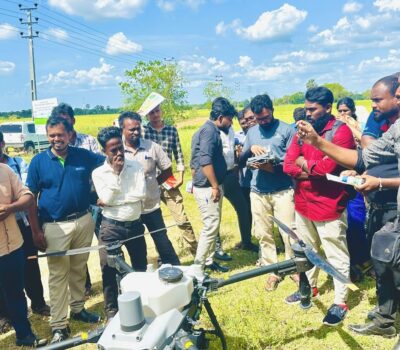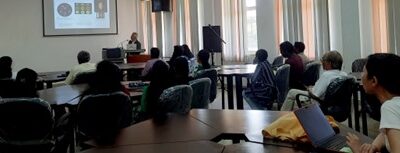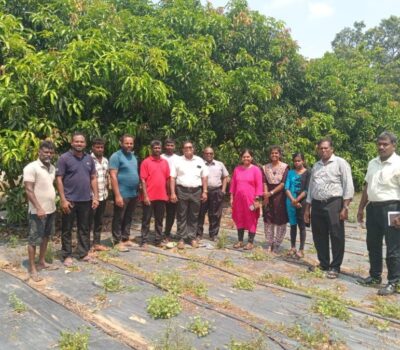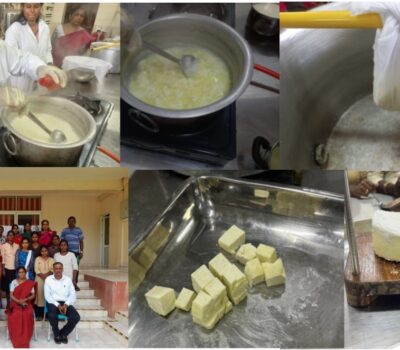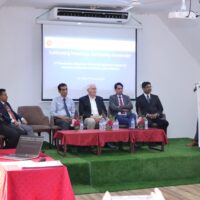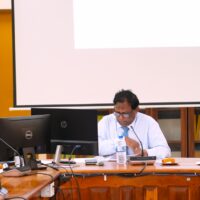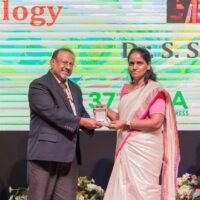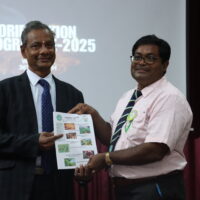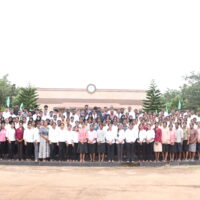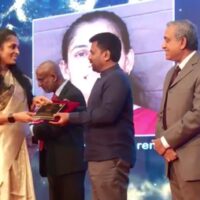A workshop on “Soil Fertility and Water Management in Organic Farming” was conducted on in the auditorium of the Faculty of Agriculture, Ariviyal Nagar, Kilinochchi on the 11th of March, 2022 from 8.30 am to 4.15 pm. The registration for participants was started at 8.30 am and fifty farmers from the northern province were confirmed their participation. Then workshop inaugural address was delivered by Project Coordinator/ AHEAD operation, Dr. K.Pakeerathan. Thereafter opening remarks about the importance of this workshop was given by Prof. (Mrs). Nalina Gnanavelrajah, Act. Dean, Faculty of Agriculture, University of Jaffna. This workshop was organized under the AHEAD programme (AHEAD/RA2/ELTAELSE/JFN/FAG/OVAA 08/ WS4).
The session one of the workshops was conducted by the resource person Prof. (Mrs). Nalina Gnanavelrajah Professor in Agricultural Chemistry, Faculty of Agriculture, University of Jaffna on “how to prepare our own compost and organic fertilizers”. Farmers actively participated in this session with group discussions.
Second session of the workshop on “Efficient field practices for crop irrigation” was conducted jointly by Dr. N. Kannan, Head/Agricultural Engineering and Dr. P. Alvappillai, Retired Senior Lecturer at the Department of Agricultural Engineering. After providing technical aspects related to best irrigation practices in the workshop, farmers were able to realize about the importance of water conservation for sustainable agriculture, harmful effects of poor irrigation practices and new techniques that are associated with the best irrigation practices. Discussion sessions were followed by a practical field demonstration with the help of the Farm Manager, Mr.S. Sritharan, in order to make the farmers aware of the best field irrigation practices available in the Farm of the Faculty of Agriculture.
At the end of the workshop participants gave the feed-back as summary. Key points of the feed backs are
a. They are confident enough to prepare their own compost
b. The gained the knowledge on how to water effectively
c. They will apply new skills learned to sort out the currently facing technical problems.







